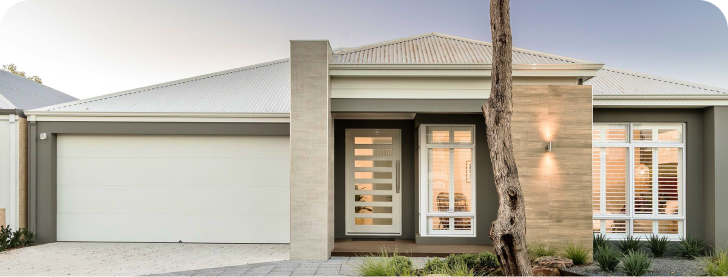
One of the best examples of putting an ADU built on your property to good use is to arrange the place to make it suitable for business activities. But before you start home-based businesses, you have to double-check all zoning laws, requirements, and regulations that you have to comply with in your residential area.
If you want to extend your horizons on how to operate your small business right from your ADU, have a look at the valuable tips in this article.
Most zoning ordinances and regulations define a home-based business as a business conducted by residents in residential areas. Business owners typically assign a part of their property for business purposes (the part of the main house or an accessory dwelling unit) and use this part for manufacturing, selling products, providing services directly to customers, or other purposes.
Local zoning ordinances contain restrictions that allow people to conduct business from their place of residence and ensure that other residents don’t suffer from inconveniences caused by business operations. It’s vital to obtain permitting documents to operate legally and avoid a sudden shutdown of your prosperous venture.
There are several types of zones that permit operating a home business, including:
Even though many residential areas allow it, local ordinances impose strict rules on the activity of such businesses. For example, a government on a local level may limit the amount of space your business area can occupy on the property, the number of employees, or the exact activity they engage in. If you’re operating a recording studio, there may be a restriction on the loudness of the noises. Or if your business uses hazardous materials, zoning restrictions can ban them altogether.
Such cities or counties combine residential and commercial districts and usually foresee that home businesses can operate legally from an ADU unit where you can both live and work.
It’s less widespread, but some office areas allow small businesses that you conduct from your own property. Especially for those providing services from home offices, this is relatable.
If you’re a sole proprietor, you can also check if there are overlay districts in your region that foster the spread of home-based businesses for economic improvements. Such zones have milder restrictions and offer business owners more flexible rules and conditions.
The local government of a particular city or state issues and updates specific rules for operating a home-based business. Thus, everything depends on the local jurisdiction, and it makes sense to resort to lawyers or ADU building companies for relevant information for your area.
However, there are restrictions that are common in the majority of residential areas:
These activities include those related to negative impacts on the environment, such as excessive noise and odors, dangerous materials, and activities that invoke lots of extra traffic or, by other means, disrupt the peaceful environment of a residential area.
Government agencies may impose limitations on coverage of your business, including volume of activities, physical size of your home office, or staff numbers.
Residential districts are designed for living and recreation. Therefore, the local zoning department can develop rules to make sure that the integrity of the neighborhood is well-preserved. For example, it may ban illuminated commercial signs or signage with a business name and contact information.
If your sole proprietorship attacks many clients, it has the potential to cause a nuisance for local residents. For example, many clients can overcrowd the area or cause car noise from constant arrivals. It’s a rule of thumb for local governments to keep in mind the residential character of the area. So if you plan an ADU business, check the zoning laws of your city.
Some districts forbid storing equipment or materials in quantities that may lead to cluttered areas near residential buildings.
Before starting the permit process, research zoning ordinances, zoning laws, and other regulations for your area. You need to learn about the specifics to ensure your business is eligible to run from an ADU. The next step is to fill out an application form and add the necessary documentation. Also, you need to pay an application fee when submitting all of these to a city council or state agency.
After you have submitted an application, authorities need to conduct examinations, sometimes coupled with an inspection of your site. They need to ascertain that your property complies with safety and zoning laws and that the facts stated in your application correlate with the real state of things. If everything is in order, you will receive approval.
For all these reasons, it’s recommended to contact officials from the local planning and zoning department that is responsible for zoning permits in advance.
There is a list of documents you need to provide to receive an ADU business permit:
A city or county business license is a must-have for any business. You need this document to get your business registered and to open a bank account that is eligible for a loan.
Most businesses that only sell goods don’t need professional licensing, but others must have a special license. For instance, business professionals who need professional licenses are those who engage in law, accounting, the medical sphere, building and architecture, real estate operations, insurance, and tax service businesses.
For those who sell tobacco and alcohol, forearms, medical supplies, and equipment, as well as other goods under enhanced control, an occupational license is necessary.
A sales tax license is necessary for anyone who wants to sell goods at retail. It allows business owners to collect taxes from selling taxable items.
To get this permit, you need to prove that you, as a business owner, occupy the house (or an ADU) and operate the business yourself.
Some jurisdictions require not only that your business type corresponds to the zone of allowed property but also that you submit the plan of your working place and where it is on your property.
This is necessary for businesses that engage in the preparation of food and other areas related to the health and safety of people.
Businesses whose operations pose a fire hazard need to apply to take into account all security measures at their facility and then submit documents certifying their presence to their city fire department.
A business license and a home occupation permit are both documents giving the right to conduct business activity. The main difference between them lies in the fact that a home occupation permit allows a business owner to work from their home, while a general business license allows them to work from anywhere: a home office or an actual office in a commercial building.
Another difference is that the local government should grant you a general business license in any case. These are required business licenses for any type of activity, and neither home-based businesses nor other businesses can operate without them.
But for a home business, you also need a home occupation permit for your firm to start operating. It ensures that your home-based business doesn’t produce loud noises, smelly odors, or other nuisances for other residents.
To obtain more precise information concerning your area, we advise you to contact representatives of the city or county zoning and planning department.
However, most localities adhere to similar norms that we summarize in the following points:
How many parking lots does your place have? If there’s a parking space shortage, your neighborhood may impose restrictions on the amount of space your business and your customers can occupy.
Sometimes government agencies require you to create your own parking space on your property to accommodate all cars related to your business. Especially when it comes to constant client flow or massive delivery.
For some types of activities, you have to obtain additional licenses for parking. For instance, if your home business has something to do with transporting heavy equipment by truck, government regulations may demand that you park it in a designated area on your property. Also, some areas will not allow lots of trucks at all because they can interfere with local traffic.
More specific home business permits include, among others, a sign permit. A business has to advertise its services, but in a residential area, there may be certain zoning restrictions created to prevent the “commercialization” of a residential neighborhood.
Signage limitations may encompass such aspects as size, height, showiness, the ban of offensive words and deceptive content, etc.
To obtain a sign permit, a small business owner must submit an application, pay a fee, and provide evidence that their signage complies with the rules established in their district.
If you own a home business located in a residential area or a mixed residential-commercial area, you have to keep in mind that your business mustn’t disrupt peace for other residents of your neighborhood.
As far as noise impact is concerned, you have to foresee the following factors:
To decrease the amount of traffic generated by your business, a home business person can:

A home-based business license has a limited service life. After your licenses and permits have expired, you need to renew them to continue selling goods and providing services legally. So, what do you do when it happens?
First of all, reach out to your city, town, or county zoning board. Their representatives will provide you with all data concerning the renewal process of your home-based business license. If you’re not sure how the application form looks or if you need to fill in your social security number, just consult with them first.
The next step is to pay a fee. After this, you also have to undergo an examination of your business to determine whether it complies with zoning requirements. At this stage, they may ask you to provide documents that confirm changes in important aspects of your business.
As for revocation, if your small business fails to adhere to set rules, a zoning administrator has the right to revoke your licenses and permits. They will send you a notice containing the action itself, as well as the grounds for the decision.
To restore your business license, you’ll have to make amends and bring your business in line with the norms.
Provided you have all the necessary licenses and permits we’ve mentioned above, there is nothing that can stop you from living and conducting your business on the same plot of land. The only thing you have to keep in mind is to abide by residential zoning regulations and minimize negative impacts on your neighborhood.
Accessory dwelling units are living spaces located on your land. Typically, they have all the amenities for living, but you can arrange the internal layout in a way that is convenient for your business. What it means to you is that you can live in the main house and do your jobs in the small house just a few steps from the residence.
Yes, home businesses are subject to zoning ordinances. If you run your business in a residential district, you have to keep in mind all the norms and restrictions associated with providing services and selling goods in zones not designed for commercial purposes. Residential districts envisage more limitations on advertising, noisy activities, and works with industrial materials, especially dangerous and highly flammable ones, in comparison with commercial zones.











